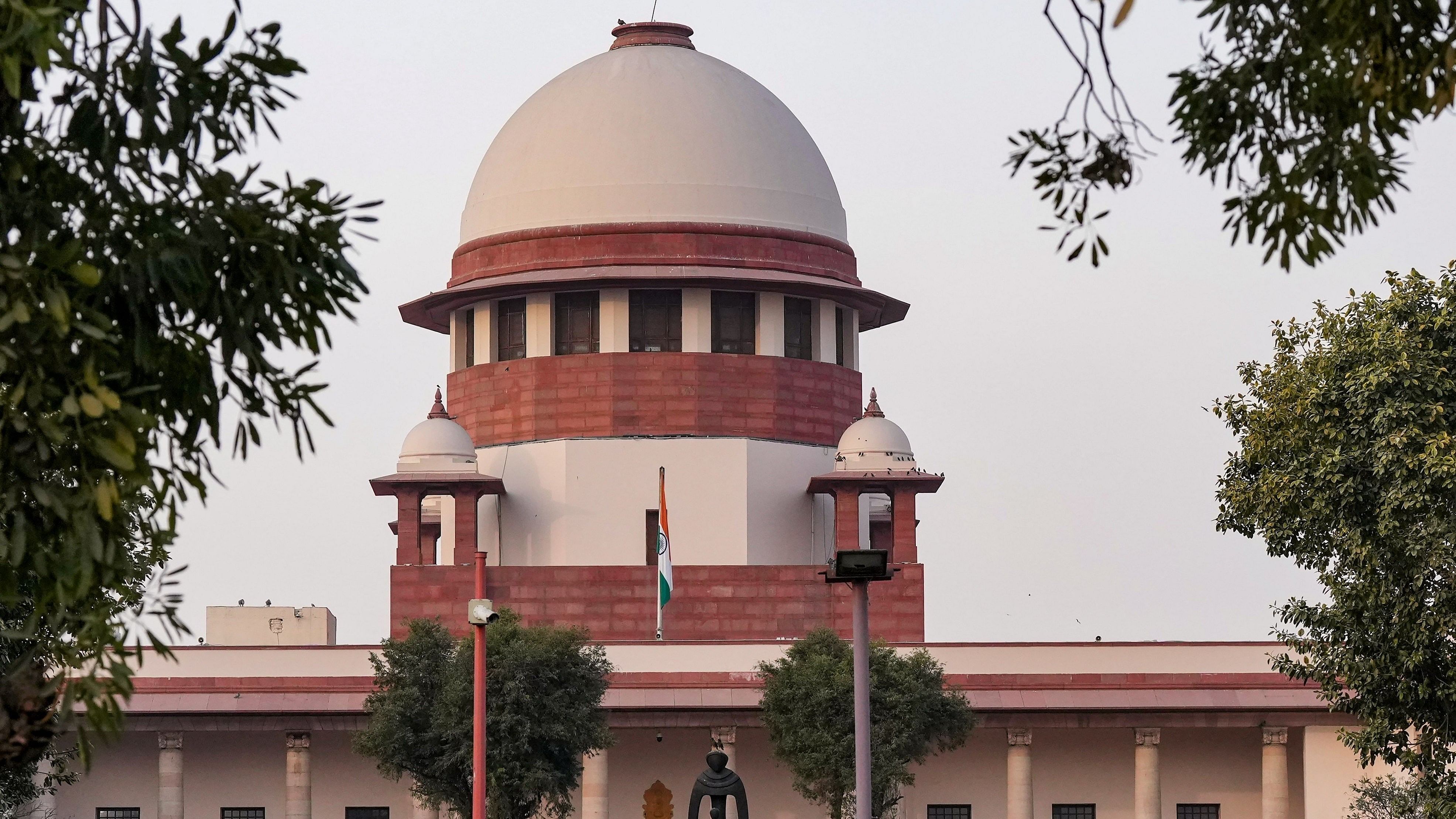
The Supreme Court of India.
Credit: PTI File Photo
New Delhi: The Supreme Court on Monday held that an individual member of the legislature cannot assert a claim of privilege to seek immunity under Articles 105 and 194 of the Constitution from prosecution on a charge of bribery in connection with a vote or speech in the legislature.
"Corruption and bribery by members of the legislatures erode probity in public life," a seven-judge Constitution bench led by Chief Justice of India D Y Chandrachud said.
The bench overruled the 1998 judgement in P V Narasimha Rao case (J M M Bribery case) which said the legislators would enjoy immunity from prosecution in case of bribery to vote in the House.
The bench said, "Such a claim to immunity fails to fulfil the twofold test that the claim is tethered to the collective functioning of the House and that it is necessary to the discharge of the essential duties of a legislator".
Article 105(2) of the Constitution deals with the powers, privileges, and immunities of the members of Parliament and Parliamentary committees. Similarly, Article 194(2) of the Constitution confers a similar immunity to the members of the State Legislatures.
In its judgment on a reference made in 2019 by a five-judge bench led by then Chief Justice of India Ranjan Gogoi, the larger bench disagreed with and overruled the judgment of the majority on the aspect of whether, by virtue of Articles 105 and 194 of the Constitution, a Member of Parliament or the Legislative Assembly, as the case may be, can claim immunity from prosecution on a charge of bribery in a criminal court.
"The judgment of the majority in P V Narasimha Rao, which grants immunity from prosecution to a member of the legislature who has allegedly engaged in bribery for casting a vote or speaking has wide ramifications on public interest, probity in public life and parliamentary democracy," the bench said.
The bench which also comprised Justices A S Bopanna, M M Sundresh, P S Narasimha, J B Pardiwala, Sanjay Kumar and Manoj Misra, said, "There is a grave danger of this Court allowing an error to be perpetuated if the decision were not reconsidered."
The bench said Articles 105 and 194 of the Constitution seek to sustain an environment in which debate and deliberation can take place within the legislature.
"This purpose is destroyed when a member is induced to vote or speak in a certain manner because of an act of bribery," the bench said.
The bench stated that bribery is not rendered immune under Article 105(2) and the corresponding provision of Article 194 because a member engaging in bribery commits a crime that is not essential to the casting of the vote or the ability to decide on how the vote should be cast. The same principle applies to bribery in connection with a speech in the House or a Committee, it said.
The bench emphasised that the jurisdiction exercised by a competent court to prosecute a criminal offence and the authority of the House to take action for a breach of discipline in relation to the acceptance of a bribe by a member of the legislature exist in distinct spheres.
"The scope, purpose and consequences of the court exercising jurisdiction in relation to a criminal offence and the authority of the House to discipline its members are different," the bench said.
The bench said the potential of misuse against individual members of the legislature is neither enhanced nor diminished by recognising the jurisdiction of the court to prosecute a member of the legislature who is alleged to have indulged in an act of bribery.
"The offence of bribery is agnostic to the performance of the agreed action and crystallizes on the exchange of illegal gratification. It does not matter whether the vote is cast in the agreed direction or if the vote is cast at all. The offence of bribery is complete at the point in time when the legislator accepts the bribe," the bench said.
The bench pointed out the interpretation which has been placed on the issue in question in the judgment of the majority in PV Narasimha Rao resulted in a paradoxical outcome where a legislator is conferred with immunity when they accept a bribe and follow through by voting in the agreed direction. On the other hand, a legislator who agrees to accept a bribe, but eventually decides to vote independently will be prosecuted. Such an interpretation is contrary to the text and purpose of Articles 105 and 194, it said.
The question before the top court had arisen as Sita Soren, JMM chief Sibu Soren's daughter-in-law, questioned her prosecution on charges of bribery during the Rajya Sabha elections of 2012.
The court had ordered the establishment of a larger Constitution bench to decide whether a lawmaker can take refuge under the immunity clause to avoid criminal prosecution for voting in Parliament or the Assembly after taking a bribe from a beneficiary.
